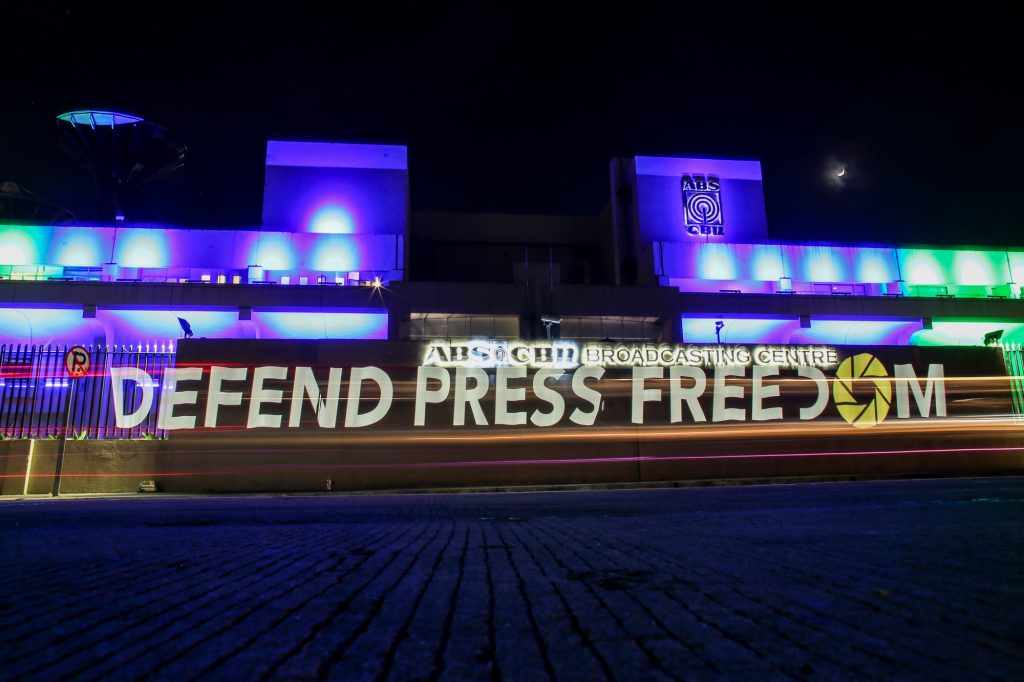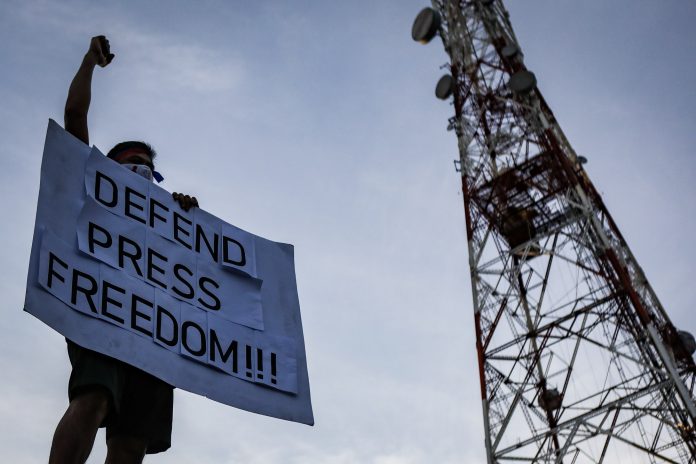The Philippines fell by two notches in the most recent global press freedom index released by Reporters sans Frontières (RSF) this week.
In its 2021 World Press Freedom Index, RSF reported that the Philippines is now 138th out of 180 countries ranked in the Index.
The report noted that “the government … has developed several ways to pressure journalists who dare to be overly critical” of government policies, especially on the “war on drugs.”
It said that “persecution of the media has been accompanied by online harassment campaigns” orchestrated by supporters of supporter of President Rodrigo Duterte.
The RSF report also noted that “red-tagging” has “returned in force” in the Philippines in 2020.
The government, however, said that despite the decline, the Philippines still fared well in the Index.
“This is an indication that compared to previous administrations, press freedom under [Duterte] remains freer and better,” read a statement from the Presidential Task Force on Media Security.
Undersecretary Joel Sy Egco, head of the task force, said the country’s rankings in the Index for the past five years remained generally better compared to the previous administration.
“It is high time to set the record straight, there is no shrinking space for media in the Philippines based on this year’s World Press Freedom Index of the RSF,” said Egco.
Citing the pandemic as the main reason, RSF said that press freedom was “totally blocked or seriously impeded in 73 countries and constrained in 59 others,” most notably in Malaysia where an anti-fake news law and arrests of journalists led to a massive 18-point decline.
According to RSF, this year’s “Index data reflect a dramatic deterioration in people’s access to information and an increase in obstacles to news coverage.”
It said that the “coronavirus pandemic has been used as grounds to block journalists’ access to information sources and reporting in the field.”
Egco said the RSF’s Index proves that the media environment in the Philippines has generally improved since 2009, especially after Duterte came to office.

The government official said that with a dedicated mandate to resolve media killings in the country, the PTFoMS oversaw the 50th case of media killing that resulted in a guilty verdict, bringing to 67 the total number of media killers that were convicted by the courts as of 2021.
In a statement, the country’s Commission on Human Rights, however, said the 2021 World Press Freedom Index “suggests that the Philippines is facing a worse state of press freedom.”
Lawyer Jacqueline Ann de Guia, commision spokesperson, said the report is “concretely reflected in a wave of persecutions directed towards journalists and media institutions.”
The lawyer said the commission is alarmed over some laws enacted, such as the Cybercrime Prevention Law and the Anti-Terrorism Act, which “pose legitimate threats to further threaten freedoms of speech and expression, particularly in articulating political sentiments or dissent.”
De Guia added that the 2021 Index sends a firm message that the current political climate in the country “exacerbates the danger and fears over the erosion of democratic and press freedom during these uncertain times.”
She urged the Philippine government “to provide legal protection” to media workers and “to expedite the investigation of media-related killings and attacks.”









